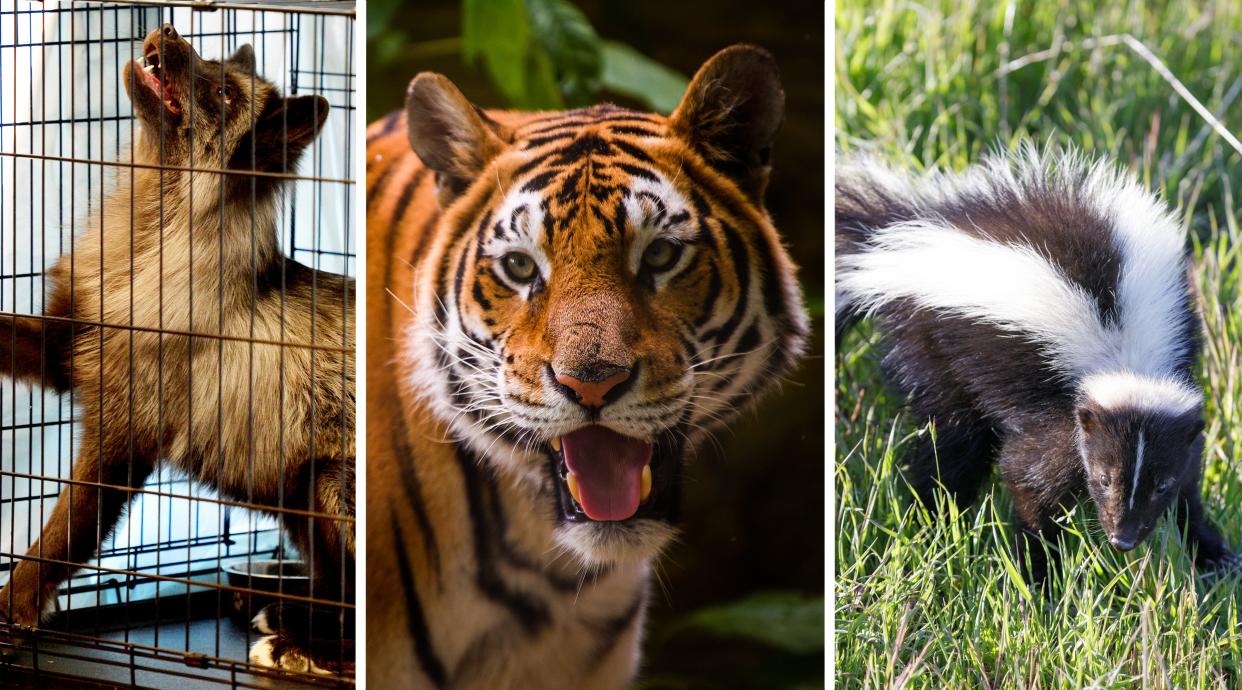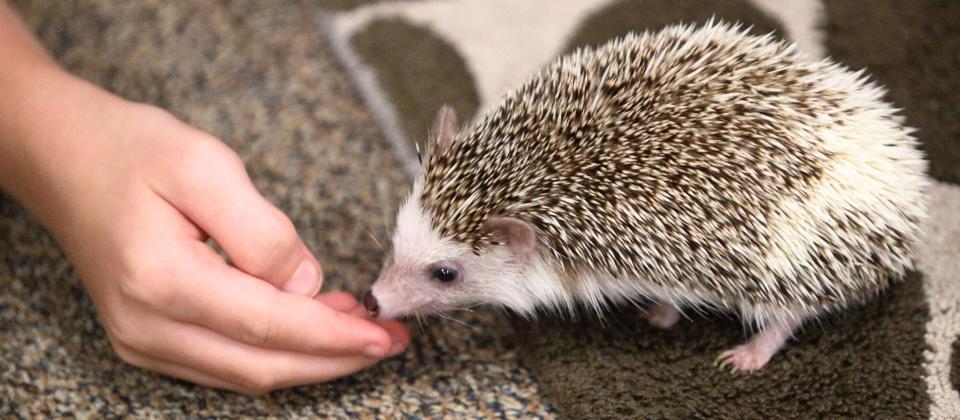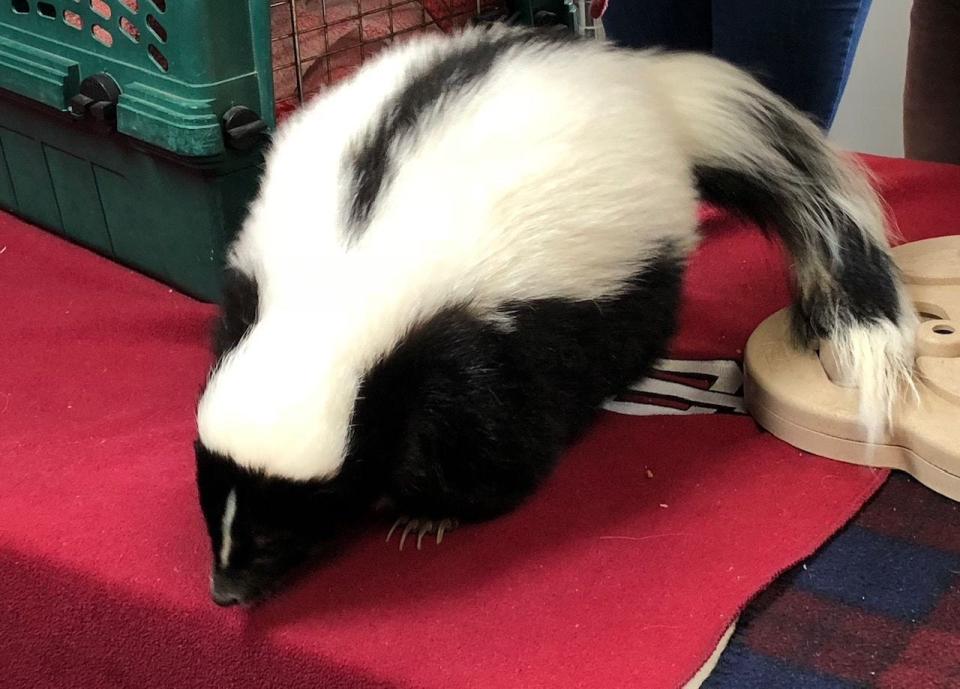Here's the most popular wild animal being kept in Monroe County

The city’s animal control division usually gets calls about noisy dogs and injured deer, but sometimes the employees also have to corral large snakes, alligators and a notorious monkey that a few years ago scared some kids on a local playground.
People in Bloomington aren’t allowed to own any wild animals, which means you should encounter only dogs, cats and other animals the city has specifically allowed, which include sugar gliders (a gliding opossum), African pygmy hedgehogs, and degus (a rodent).

Virgil Sauder, director of the animal care and control division, which is part of the city’s department of public works, said the city has been called a few times about a monkey being loose in town. The owner was letting it play on a jungle gym, which seems appropriate, but definitely wasn’t, as it was scaring kids. Sauder said the owner was informed that keeping monkeys in the city is not allowed.
It’s easy to see how the owner might have been confused: Monkeys are allowed as pets in Indiana. The state doesn’t even require owners to get a permit.
2021 monkey sighting: Couple catches animal on video near local hotel
The state does require permits for what it classifies as “wild” animals, which includes anything from the eastern cottontail rabbit to beavers, bears, venomous reptiles, big cats and crocodilians whose length exceeds 5 feet.
The Indiana Department of Natural Resources requires the permits in part to make sure the animals cannot escape their enclosures and potentially endanger the public: The Putnam County Sheriff’s office said in October that two bears had escaped their enclosure and injured the owner.
Linnea Petercheff, permits supervisor for the DNR, said she doesn’t recall any escapes of bears, wild cats, wolves, venomous reptiles or large crocodilians in the 25 years she has worked with the agency. Animal sanctuaries are managed by the U.S. Department of Agriculture.
Petercheff said she has been involved in situations in which DNR has seized the animals, such as when the owner’s inability to care for the animal resulted in unhealthy conditions.
Verifying the owner's ability to care for the animal is another reason the agency requires permits, Petercheff said. The animals also have to be examined annually by a licensed veterinarian.
DNR issues 600 wild animal permits a year. They have to be renewed annually.
What's the most popular wild animal in Monroe County?
The most popular wild animal in the state is the striped skunk, for which the state has issued 183 permits. The red fox, which can come in colors other than red, ranks second, with 142 permits.
The striped skunk also is the most popular wild animal in Monroe County, accounting for five of the 11 wild animal permits the DNR issued here for Class II and III species this year. The local striped skunk squad includes females Juniper, Penelope and Chloe and a male named Skeeter. Other local animals include a racoon, a beaver, a Virginia opossum named Sassy and a red fox named Loki.

Opossums appear to be getting more popular across the state, Petercheff said, while venomous snakes, bobcats and alligators longer than 5 feet are “a little more unusual,” she said.
Sauder said local laws prohibit wild animals also to prevent invasive species from taking hold and to protect humans from catching animal diseases, especially from monkeys.
He said the city also has concerns about what happens to the animals when the owner can no longer take care of them. Often such situations result in the animals’ death, Sauder said.
About a third of the calls received by Bloomington’s animal control division deal with diseased or injured native animals, such as deer, raccoons or coyotes. Another third are calls from people who suspect animals are being neglected or abused. And another third deals mostly with complaints about animals who are disturbing their neighbors either because they make too much noise or because they routinely escape their enclosures.
Petercheff and Sauder asked that before people get pets, whether wild or not, they make sure they have the resources and time to properly take care of the animals. Sauder asked people do research beyond watching YouTube videos, which he said don’t usually show the negative aspects of owning animals.
An animal permit from DNR may not be enough to allow people to own wild animals. Local governments also can prohibit animals, as Bloomington does, or require additional permits. Sauder said people living in Monroe County, but outside the city limits, have to get permits from the Monroe County Animal Management Office, which is part of the county sheriff’s office. The county animal management office did not return phone messages.
Boris Ladwig can be reached at bladwig@heraldt.com.
This article originally appeared on The Herald-Times: Here's the most popular wild animal being kept in Monroe County.

